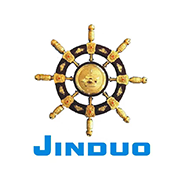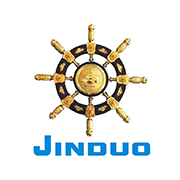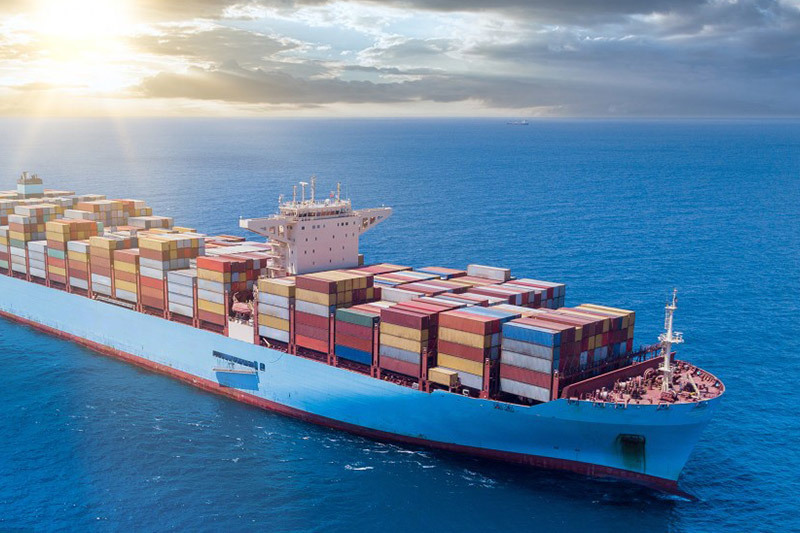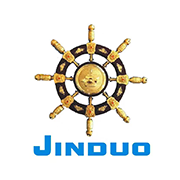news
Mastering the Art of Ship Operations Management for Optimal Efficiency
Mastering the Art of Ship Operations Management for Optimal Efficiency
Table of Contents
1. Introduction to Ship Operations Management
2. The Importance of Ship Operations Management
3. Key Components of Ship Operations Management
- Resource Allocation Strategies
- Effective Crew Management
4. Safety Protocols in Ship Operations
5. Technological Advancements in Maritime Operations
6. Evaluating Performance in Ship Operations
7. Challenges in Ship Operations Management
8. Conclusion
9. FAQs
Introduction to Ship Operations Management
Ship operations management is a critical discipline within the maritime industry that encompasses the planning, execution, and supervision of maritime activities. In today’s fast-paced shipping environment, mastering the art of ship operations management is essential for achieving optimal efficiency. This guide aims to provide an in-depth understanding of the various elements involved in ship operations, helping maritime professionals streamline their processes and improve overall performance.
The Importance of Ship Operations Management
Efficient ship operations management is vital for several reasons:
1. **Cost Reduction**: By optimizing operational processes, shipping companies can significantly reduce fuel consumption, maintenance costs, and other operational expenses.
2. **Safety and Compliance**: Effective management ensures adherence to international maritime regulations and safety protocols, reducing the risk of accidents and legal issues.
3. **Customer Satisfaction**: Timely and efficient delivery of goods enhances customer satisfaction, which is crucial for maintaining a competitive edge in the shipping industry.
4. **Environmental Responsibility**: Implementing sustainable practices within ship operations contributes to environmental conservation and compliance with regulations aimed at reducing emissions.
Key Components of Ship Operations Management
To master ship operations management, one must focus on several key components. Understanding these elements will enable maritime professionals to develop strategies that enhance operational efficiency.
Resource Allocation Strategies
Efficient resource allocation is the cornerstone of effective ship operations management. It involves the optimal distribution of resources such as fuel, crew, and equipment to maximize productivity and minimize waste. Here are some strategies to improve resource allocation:
- **Data-Driven Decision Making**: Utilize data analytics to assess resource usage patterns and identify areas for improvement. This approach allows for informed decision-making based on real-time data.
- **Inventory Management**: Implement a robust inventory management system to track supplies and equipment. This reduces the chances of overstocking or running out of essential items during operations.
- **Dynamic Scheduling**: Adopt flexible scheduling practices that can adapt to changing conditions. For instance, if a ship is delayed due to weather, having a dynamic schedule allows for efficient reallocation of resources.
Effective Crew Management
The crew is the backbone of any maritime operation, and effective crew management is crucial for enhancing operational efficiency. Key practices include:
- **Training and Development**: Continuous training programs ensure that crew members are equipped with the latest skills and knowledge. This not only boosts morale but also improves safety and efficiency.
- **Workforce Planning**: Proper workforce planning involves analyzing crew workloads and rotating shifts to prevent fatigue. A well-rested crew is more productive and less prone to accidents.
- **Performance Monitoring**: Regularly assess crew performance through evaluations and feedback. This helps identify high performers and areas needing improvement, fostering a culture of excellence.
Safety Protocols in Ship Operations
Safety is paramount in ship operations management. Implementing stringent safety protocols not only protects crew members but also safeguards cargo and the vessel itself. Here are essential safety practices:
- **Regular Drills and Training**: Conduct emergency drills and safety training to prepare the crew for potential crises. Familiarity with protocols enhances response times and saves lives during emergencies.
- **Risk Assessment**: Regularly perform risk assessments to identify potential hazards. Proactive measures can be implemented to mitigate these risks, ensuring a safer working environment.
- **Compliance with International Standards**: Adhere to international safety regulations such as SOLAS (Safety of Life at Sea) and MARPOL (Marine Pollution). Compliance not only ensures safety but also enhances the company’s reputation.
Technological Advancements in Maritime Operations
The shipping industry has witnessed significant technological advancements that have transformed ship operations management. Embracing these technologies can lead to greater efficiency and effectiveness. Key innovations include:
- **Automated Systems**: Implementing automated systems for navigation, engine control, and cargo management reduces human error and enhances operational efficiency.
- **IoT and Connectivity**: The Internet of Things (IoT) enables real-time monitoring of ship conditions, allowing for proactive maintenance and reduced downtime.
- **Data Analytics**: Utilizing big data analytics to interpret operational data can provide insights into performance trends, leading to informed decision-making and strategic improvements.
Evaluating Performance in Ship Operations
Performance evaluation is a critical aspect of ship operations management. Regular assessments help identify strengths and weaknesses in operations, allowing for targeted improvements. Key performance indicators (KPIs) to consider include:
- **Fuel Efficiency**: Monitor fuel consumption against distance traveled to evaluate efficiency. High fuel consumption may indicate operational inefficiencies.
- **On-Time Delivery Rates**: Track the percentage of shipments delivered on time. This metric directly reflects operational efficiency and customer satisfaction.
- **Safety Incident Rates**: Analyze the frequency and severity of safety incidents. A reduction in incidents indicates effective safety management practices.
Challenges in Ship Operations Management
Despite advancements in ship operations management, several challenges persist. Understanding these challenges is crucial for developing effective strategies to overcome them:
- **Regulatory Compliance**: Keeping up with ever-changing international regulations can be daunting. Companies must prioritize compliance to avoid penalties and maintain operational legitimacy.
- **Crew Shortages**: The maritime industry frequently faces crew shortages, leading to increased workloads and potential burnout. Investing in recruitment and training can help mitigate this issue.
- **Technological Integration**: While technology offers numerous benefits, integrating new systems into existing operations can be complex. Companies must ensure proper training and support for successful implementation.
Conclusion
Mastering ship operations management is an ongoing journey that requires a comprehensive understanding of various elements, from resource allocation to technological advancements. By prioritizing efficiency, safety, and continuous improvement, maritime professionals can significantly enhance operational performance. Embracing innovation and maintaining a skilled workforce are essential for navigating the challenges of the shipping industry and achieving optimal efficiency.
FAQs
1. What is ship operations management?
Ship operations management refers to the planning, execution, and supervision of maritime activities to ensure efficient and safe vessel operations.
2. Why is crew management important in ship operations?
Effective crew management is crucial because a well-trained and rested crew enhances productivity, safety, and compliance with regulations.
3. How can technology improve ship operations?
Technology can enhance ship operations through automation, real-time monitoring, and data analytics, leading to improved efficiency and reduced human error.
4. What are some key performance indicators in ship operations?
Key performance indicators include fuel efficiency, on-time delivery rates, and safety incident rates, which help evaluate operational effectiveness.
5. What challenges do companies face in ship operations management?
Challenges include regulatory compliance, crew shortages, and the complexity of integrating new technologies into existing systems.
By focusing on these elements and continuously striving for improvement, maritime professionals can effectively master the art of ship operations management, leading to optimal efficiency in their operations.
Other news
Exploring the Benefits of Used Commercial Vessels for Your Transportation Needs
When it comes to the transportation industry, the choice of vessels plays a crucial role in operational efficiency and cost-effectiveness. Used commercial vessels have gained popularity among businesses seeking to optimize their maritime logistics. Purchasing a pre-owned vessel can offer several benefits that are both practical and financially savvy. One of the foremost advantages of acquiring a u
Exploring the Efficiency of Self Unloading Bulk Carriers: Revolutionizing Maritime Transport
Exploring the Efficiency of Self Unloading Bulk Carriers Table of Contents Introduction to Self Unloading Bulk Carriers History and Evolution of Self Unloading Bulk Carriers Design Features of Self Unloading Bulk Carriers Operational Efficiency of Self Unloading Bulk Carriers Advantages Over Traditional Bulk Carriers Environmental Impact and Sustainability Technological Advancements
Understanding the Significance of 5000 DWT Bulk Carriers in Maritime Transport
Bulk carriers are a vital component of the maritime transport sector, particularly when it comes to the efficient movement of solid bulk commodities. One of the most commonly utilized classes of these vessels is the 5000 DWT (Deadweight Tonnage) bulk carrier. Understanding their specifications and advantages can provide valuable insights into their significance within the shipping industry. A 5000
Privacy
The Software respects and protects the personal privacy of all users of the Services. In order to provide you with a more accurate and personalized service, the Software will use and disclose your personal information in accordance with this Privacy Policy. However, the Software will treat such information with a high degree of diligence and duty of care. Except as otherwise provided in this Privacy Policy, the Software will not disclose or provide this information to third parties without your prior permission. The Software may update this Privacy Policy from time to time. You will be deemed to have agreed to this Privacy Policy in its entirety when you agree to the Software Service Use Agreement. This Privacy Policy is an integral part of this Software Service Use Agreement. 1. Scope of ApplicationIn your use of the Software's network services, the Software automatically receives and records information on your cell phone, including, but not limited to, your health data, the language used, the date and time of access, information on hardware and software characteristics, and data on webpage records of your needs; 2. Use of InformationAfter obtaining your data, the Software uploads it to the server to generate your leaderboard data so that you can better use the Services. The Software will upload your data to the server to generate your ranking data so that you can use the service in a better way. 3. Information Disclosure 3.1 The Software will not disclose your information to untrusted third parties. 3.2 In accordance with the relevant provisions of the law, or the requirements of administrative or judicial bodies, disclosure to third parties or administrative or judicial bodies; 3.3 If you appear to violate the relevant Chinese laws, regulations or relevant rules, it is necessary to disclose it to a third party; 4. Information Storage and Exchange The information and materials collected by the Software about you will be stored on the servers of the Software and/or its affiliates. The information and data may be transferred to and accessed, stored and displayed outside of your country or region or the country in which the Software collects the information and data. 5. Information Security When using the Software's network services to conduct online transactions, you will inevitably disclose your personal information, such as contact information or postal address, to the counterparty or potential counterparty. Please protect your personal information and provide it to others only when necessary. If you find that your personal information has been compromised, please contact the software's customer service immediately so that the software can take appropriate measures.













